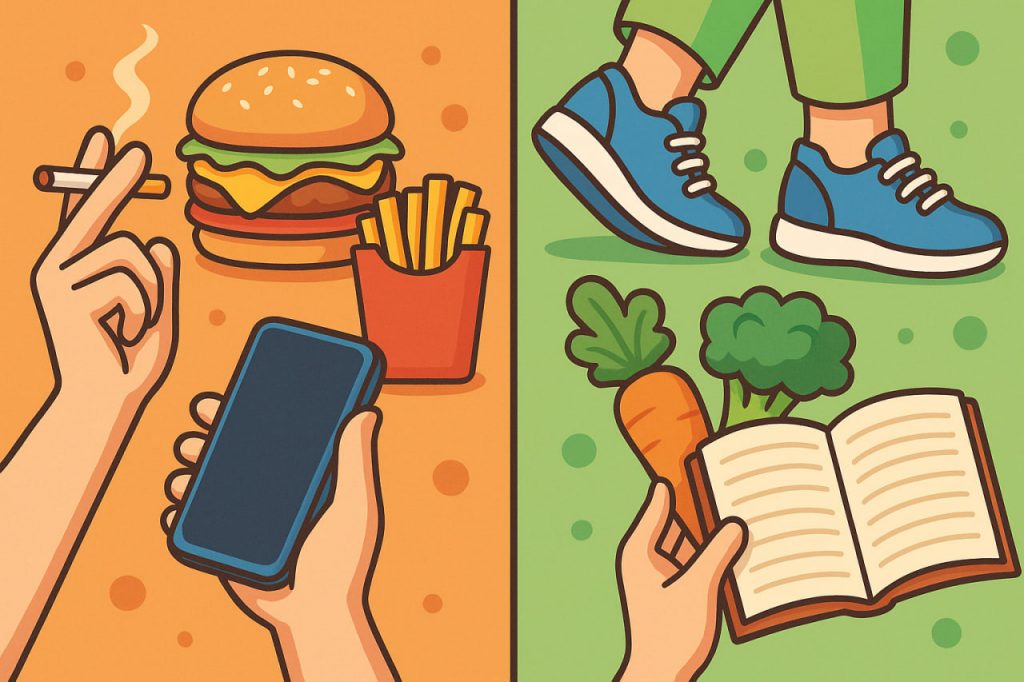Bad habits are behaviors that negatively affect health, productivity, or overall well-being. They can range from smoking, overeating, and excessive screen time to procrastination, nail-biting, or poor sleep routines. While habits form through repetition and provide short-term comfort, they often lead to long-term harm. Understanding why habits form and how to replace them is key to living a healthier and more balanced life.
How Do Bad Habits Form?
Habits are controlled by the brain’s reward system. When we perform an action that brings comfort or pleasure, the brain releases dopamine, reinforcing the behavior. Over time, this cycle becomes automatic, even if the action is harmful. Stress, boredom, or social influence can trigger bad habits, making them harder to resist.
Examples of Common Bad Habits
- Smoking – increases risk of cancer, heart disease, and respiratory problems.
- Excessive alcohol consumption – damages the liver and weakens mental health.
- Overeating junk food – leads to obesity and chronic illnesses.
- Procrastination – reduces productivity and increases stress.
- Excessive screen time – harms posture, eyesight, and social interactions.
- Poor sleep patterns – weaken the immune system and concentration.
Why Are Bad Habits Harmful?
Bad habits often:
- Damage physical health through diseases or injuries.
- Lower mental well-being, increasing stress and anxiety.
- Reduce productivity and self-confidence.
- Create a cycle of dependence that is hard to escape.
Strategies to Overcome Bad Habits
- Identify triggers – understand what situations or emotions lead to the habit.
- Replace, don’t erase – swap harmful behaviors with healthier alternatives (e.g., walking instead of smoking when stressed).
- Set realistic goals – focus on small, achievable changes.
- Use positive reinforcement – reward yourself for progress.
- Seek support – share your goals with friends, family, or support groups.
- Practice mindfulness – stay aware of urges and make conscious choices.
- Professional help – in cases of addiction, consult specialists.
Conclusion
Bad habits may seem harmless at first, but they can shape long-term health and lifestyle. Breaking free requires awareness, patience, and consistency. By replacing harmful routines with positive ones, individuals can improve their well-being and regain control of their lives.
Glossary
- Reward system – brain process that reinforces behavior with dopamine release.
- Addiction – inability to stop a behavior despite harmful consequences.
- Mindfulness – practice of being aware and present in the moment.
- Procrastination – delaying tasks unnecessarily.
- Positive reinforcement – using rewards to strengthen desired behavior.


